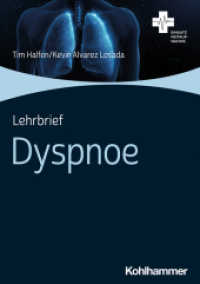Full Description
Many new approaches to school improvement are being proposed in the current climate of assessment and school accountability. This book explores one of these approaches, a new model of leadership training known as Learner-Centered Leadership (LCL). It is built around the fundamental idea that learning and learning communities are natural processes that, when properly harnessed, can lead to the highest levels of professional engagement and problem solving. Key features of this exciting new approach to school leadership include the following:
Broad-based and Generative—The book's narratives vividly illustrate the extraordinary ability of LCL to generate new approaches to leadership development. For example, encouraging and assisting school leaders to reflect on their own leadership attributes relative to the implementation of the school mission to ensure high teacher efficacy and student learning. In this respect the volume contributes significantly to the field of school leadership and professional development by extending above and beyond a narrow focus on instructional leadership.
Practice Oriented—By creating communities that encourage conversation and analysis the new data-driven models of school improvement are more likely to be successfully implemented. Without analytical discourse, the process of interpreting school data and transforming it into practice would be largely lost.
Conceptually Appropriate—The realization that everyone within a school (students, teachers, administrators) belongs to the same learning community minimizes status differences and encourages teamwork. The LCL administrator is much less likely to be authoritarian and power-oriented and much more likely to be transformative and student outcome focused. This book is appropriate for master's level courses and certification seminars, and for inservice workshops dealing with school leadership.
Contents
Contents:D.C. Berliner, Foreword. Part I:Introduction and Overview of Learner-Centered Leadership.A.B. Danzig, K.M. Borman, B.A. Jones, W.F. Wright, Learner-Centered Leadership: New Directions for School Leadership in a National Perspective. Part II:Historical and Intellectual Underpinnings of Learner-Centered Leadership—Policy Shifts and Historical Shifts in Professional Development for Principals. A. Lieberman, B. Falk, L. Alexander,A Culture in the Making: Leadership in Learner-Centered Schools. A.B. Danzig, G. Blankson, G. Kiltz, A Learner-Centered Approach to Leadership Preparation and Professional Development. G.T. Bellamy, C.L. Fulmer, M.J. Murphy, R. Muth, Conceptual Foundations for Principal Leadership. Part III: Professional Development, Context Knowledge, Curricular Reform, and Administrator Development.L.M.C. Clarkson, K.S. Louis, Leadership for Curriculum Change: Schools Engaged in "Closing the Gap". J.A. Middleton, K. Coleman, The Development of Leadership in Mathematics: Cases of Urban Reform. K. DeMoss, C.J. Wood, R. Howell, Eliminating Isolation to Foster Learner-Centered Leadership: Lessons From Rural Schools and Research Universities. T. Browne-Ferrigno, J.C. Lindle, Kentucky's Collaborative Model for Developing School Leaders for Rural High-Need Schools: Principals Excellence Program. Part IV:Research and Practice on School Leadership and Professional Development.J.C. Wayman, S. Midgley, S. Stringfield, Leadership for Data-Based Decision Making: Collaborative Educator Teams. B.A. Jones, N.D. Jackson, Learner-Centered Leadership in "Urban" Contexts: Key Elements to Consider for Professional Development. K.M. Borman, T. Boydston, W. Katzenmeyer, Managing Policy Issues in Carrying Out Systemic Reform: Lessons for Principals From Chicago, El Paso, Memphis, and Miami. Part V:Social Justice and Urban Reform Issues in Professional Development for Learner-Centered School Leaders.E. Fierro, M.L. González,Leadership in Border Rural Areas: A Pedagogical Awakening of a Principal Preparation Program. A.B. Danzig, W.F. Wright, Using Story and Narrative to Enhance the Professional Development of Learner-Centered Leaders. R.J. Starratt, Moral Issues in a Test-Driven Accountability Agenda: Moral Challenges for Learning-Centered Leadership.








